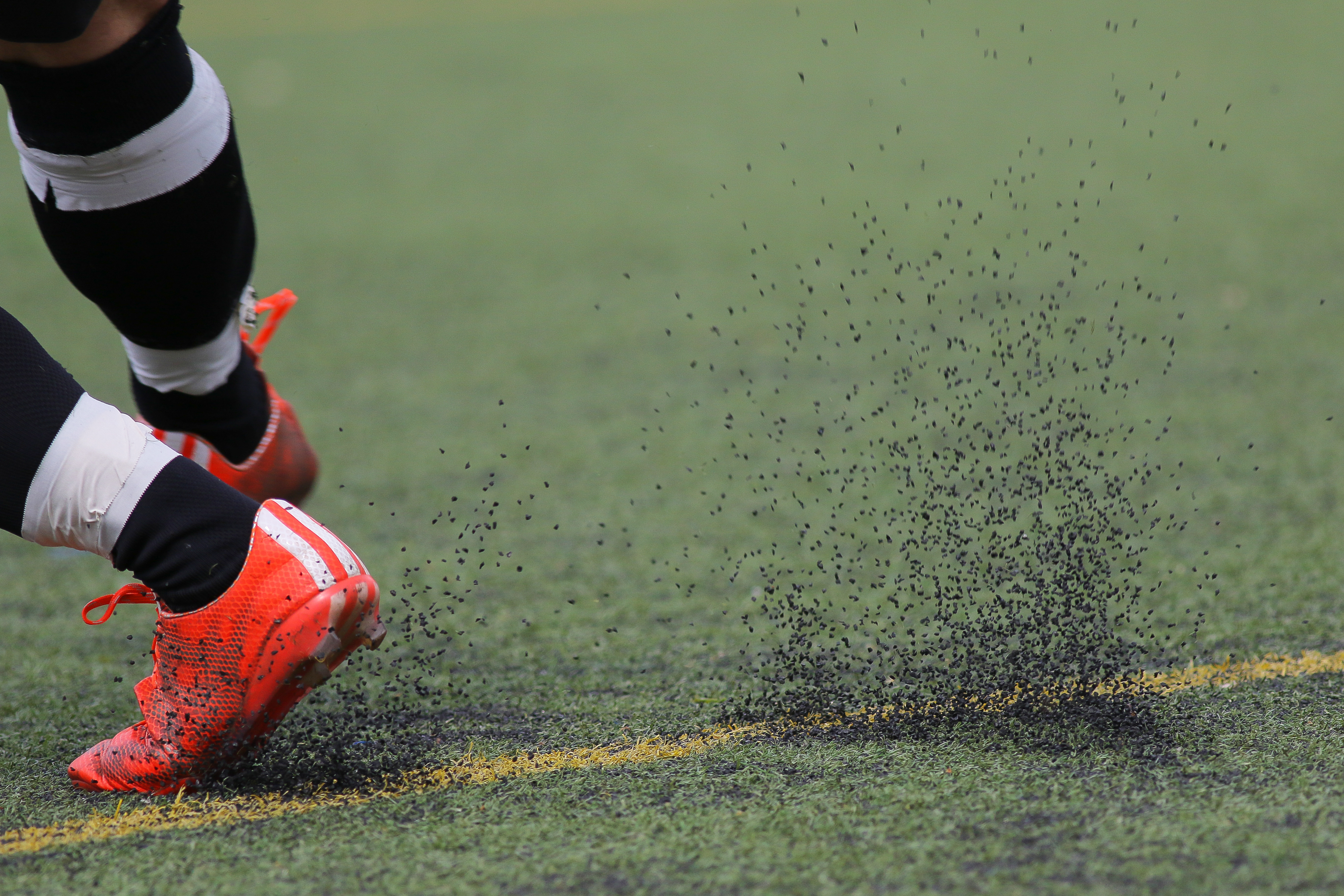The Swedish Chemicals Agency, Kemi, has stated that new artificial pitches should not use materials that contain hazardous substances, which includes infills and moulded products such as rubber crumb, EPDM (newly manufactured and vulcanised industrial rubber), and TPE (newly manufactured thermoplastics). Kemi’s focus is on artificial sports pitches and surfaces used in playgrounds for fall height requirements.
The chemical agency has highlighted two areas of concern. Firstly, the effects of the hazardous substances found in these materials, such as PAHs, heavy metals, phthalates and volatile organic compounds, and the impact these chemicals have on human health and the environment. Secondly, the impact the materials may have in increasing the spread of microplastics into the environment.
The recommendation from Kemi is that any operator specifying or installing a new pitch should have a full understanding of the product they are using, in relation to the levels of hazardous substances in the material and its potential to spread microplastics.
According to KEMI, the material supplier is responsible for ensuring the product is safe from a health and environment point of view, while the operator has the corresponding responsibility for the surface being installed.
Kemi recommends:
Not to use granules containing particularly hazardous substances.
Where possible select alternative materials that do not contain such chemicals.
To always request information about the product’s content from the supplier.
What are the regulations for dangerous chemicals?
Although Kemi references the REACH regulations for artificial infill and the levels of hazardous substances allowed, the chemical’s agency also refers to the ongoing study by the European Chemicals Agency which is developing a proposal to limit the PAH levels used in recycled rubber crumb.
Please follow this link to read the full article from Kemi.
In response to Kemi’s recommendations, the Swedish Environmental Protection Agency has developed a guide for the construction and maintenance industries to provide direction on how this advice should be interpreted.
What does this mean for pitch owners and installers?
Although cases will be dealt with on an individual basis, Kemi is looking for contractors and pitch owners to take greater responsibility for the materials used on artificial pitches and playgrounds; to avoid using granules containing “particularly hazardous substances”.
Suppliers need to be transparent about the dangerous substances their products contain, and they need to be able to demonstrate that they meet and exceed the required legislation.
What are the alternatives?
There are a number of options available when it comes to artificial pitch infill and surfaces that meet fall height legislation.
Virgin infill products for pitches, such as Cork, avoid some of the issues identified by Kemi, but Cork also comes with a higher price tag than rubber crumb and without the same degree of longevity and high performance characteristics.
PRO-gran is a hybrid artificial pitch infill that has been developed to answer the issues identified by Kemi. PRO-gran releases no PAHs or heavy metals, it has also been tested to ensure that it doesn’t breakdown and add to the spread of microplastics. And thanks to the infill’s unique coating, it is guaranteed to last for 10 years.
PRO-tect is an encapsulated rubber mulch that offers the same levels of protection as PRO-gran and has been tested to meet the legal requirements for fall height.
If you would like to find out more about PRO-gran and PRO-tect, then please get in touch or you can read more about both products by clicking on the links.
